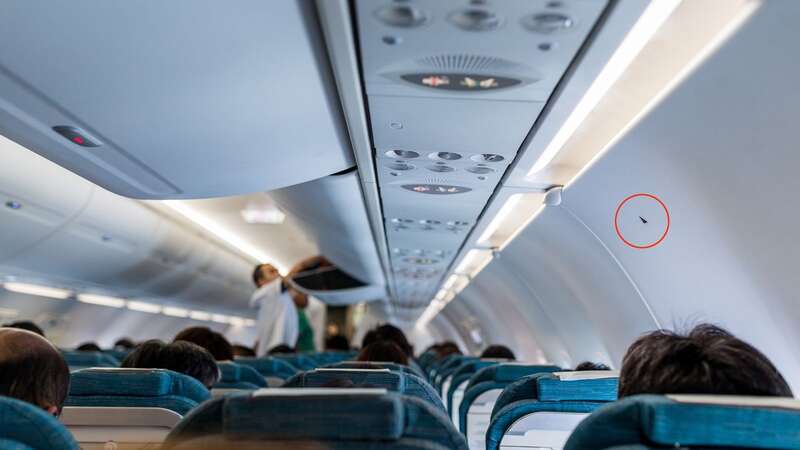
A flight attendant has explained why you may find yourself beneath a small black or red triangle when flying.
When cruising at 30,000 feet with little but a few sheets of Perspex and a thin plane wall between you and certain death, it is easy to let your mind wander. If it does, you may find yourself questioning why there are small shapes above certain seats.
The inside of the plane cabin is marked with little triangles that can be either red or black. If you look carefully enough, you may notice that they line up with the wings outside the plane. When flight crew need to check the wings, these triangles let them know the best vantage points for the slats and flaps outside.
During the winter they are particularly useful as flight attendants need to make sure that the wings are properly de-iced. One cabin crew member, who goes by @_hennylim_ on TikTok took to the video-sharing platform to explain the system.
 The seats take their nickname from William Shatner (AFP via Getty Images)
The seats take their nickname from William Shatner (AFP via Getty Images)"1. Passengers sitting next to the triangles get the best view of the wings. 2. If flight crew need to check the wings, these triangles let them know the best vantage points for the slats and flaps outside," she said.
 Amazing places to see in Lisbon including the awe-inspiring Castelo de Sao Jorge
Amazing places to see in Lisbon including the awe-inspiring Castelo de Sao Jorge
The seats below the triangles can also sometimes be referred to as 'William Shatner's seat', as the actor starred in an episode of the X Files in which he sees a goblin perched on the wing through his window.
These little stickers are not the only thing likely to pique your curiosity on a commercial jet - you may have also had the shocking realisation that there are little holes in the windows. After a passenger had their clothes ripped off their body when an Alaska Airlines plane door burst out of its panels earlier this year, it is fair to be a little perturbed by the prospect of a cabin losing pressure.
Happily Henny Lim, an air hostess with the Philippines-based airline Cebu Pacific, has explained why there is nothing to be worried about when it comes to the small holes in the perspex. She said that the punctures are also called 'bleed holes' and are essential for the safety of the aircraft.
"The tiny hole helps balance the pressure difference between the cabin and the outside air," Henny explained in a recent video. Windows on planes are made up of three layers of glass and acrylic, which work together to keep passengers insulated and secure. The holes are there to create a regulated airflow which also reduces the stress on windows from air pressure.
An expert from the Federal Aviation Administration previously told Tech Insider that as the plane gets higher up, the air pressure outside drops compared to the regulated air pressure inside the cabin. As the difference between the two increases, so does the physical stress being pressed onto the windows, which are made up of three panes of glass.
There's a small air gap in between the middle and outer panes, and the hole is actually in the middle pane. The outer pane takes the pressure, whereas the middle pane acts as a fail-safe just in case that trusty outer pane fails. They have another function, which is to ensure that the glass keeps clear from moisture and condensation as well.
Check out by signing up to our free weekly newsletter.
Read more similar news:
Comments:
comments powered by Disqus





























